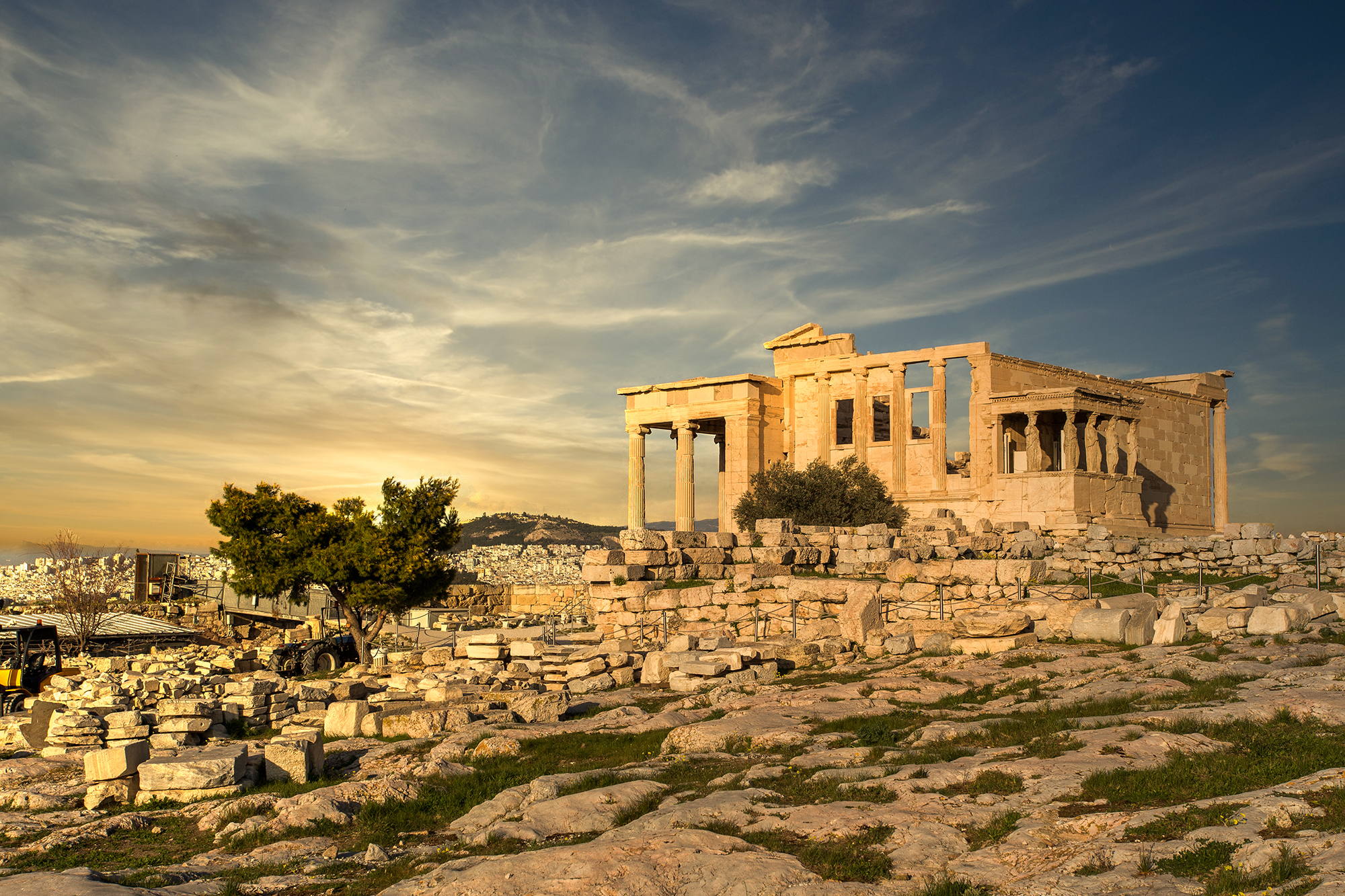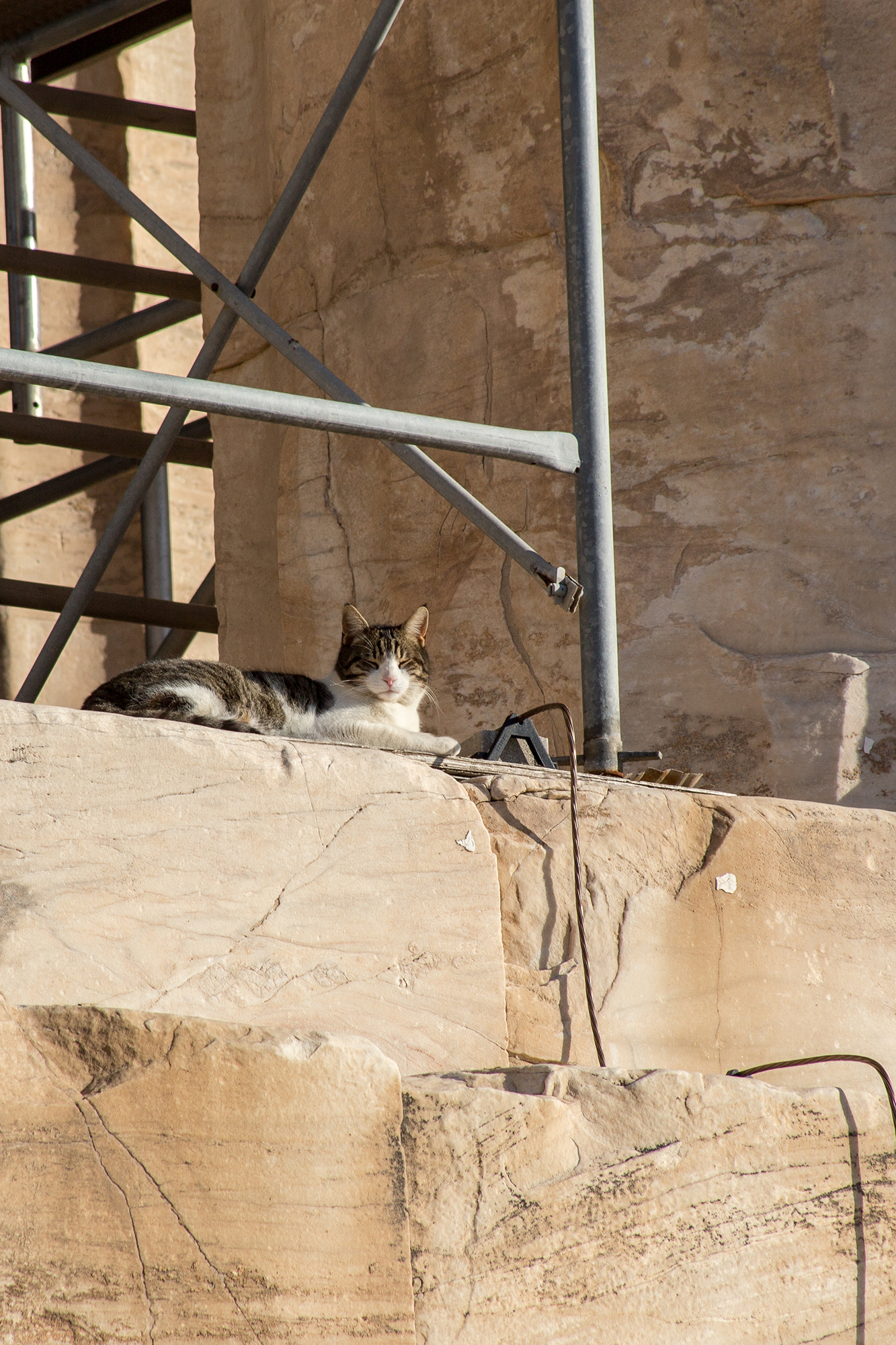Last February I had a sudden urge to go to Athens – to experience the magical wonder of Acropolis of Athens. I thought 2 weeks in the city would be quite enough time for seeing all the ruins I had in mind, enjoying lovely dinners, and just enjoying myself. I have to admit my travelling gene was aching again. After all it had been a whole year since coming home from Mexico.
Now I felt the need again and why not some travel around Europe?
Acropolis has always been a dream. Just like Rome. Well, I love ruins – I don’t think that tiny fact has escaped anyone here, but even so – all ruins have their special place in my heart. Some more than others, of course. The largest place in my heart is occupied by Göbekli Tepe – the oldest of them all. 12,000 years old ruins… magical! Haven’t seen those, though. YET!
As far as grand ruins… well, I think Parthenon might get the gold in this area! Maybe a tie with Machu Picchu… but well, yes, no, do I really have to choose? 😛

No matter where in my heart it resides, this post is dedicated to Acropolis of Athens, and to some degree Parthenon. The magical wonder, the marvel. But let’s start with Acropolis of Athens…
What is Acropolis of Athens?
When people say Acropolis – plain and simple just Acropolis – they’re usually referring to Acropolis of Athens, but it might be interesting to know there actually are other acropolises in both Greece and Turkey. As most of you might know, Turkey did belong to Greece once upon a time, while the Greek empire was a great power.
The word acropolis is a combination of the Greek words “akro” (=above/highest point) and “polis” (=city), and always refers to a city situated on a higher level.
But maybe I should’ve started with making sure you know what Acropolis of Athens really is. The Acropolis is the cliff, the whole city, or all temples combined if you will. When you say you have seen the Acropolis you mean all the temples, the whole place. The most famous temple on the Acropolis is however the Parthenon, which is the larger temple you see in all the photos. But the Parthenon is not the Acropolis, and vice versa.
The Parthenon is ON the Acropolis.



The Acropolis was always there, looming over you, from whichever point in the city – basically. It was there; watching you, guarding you.


So, now that that is out of the picture… let’s move on! During ancient Greece acropolises were common. Since they were easy to defend, they often kept the city’s riches in the temples up there.
There are evidence that the Acropolis of Athens (the cliff – remember?), was inhabited already during 3,000 B.C. However, the ruins we see today are not that old. During the 4th century B.C. Pericles had the Parthenon, Propylaea, Erechtheion, and Athena Nike temple erected.




So, I had this Pericles to thank for all these beautiful magical buildings… and 2,500 years later I’m here… Truly amazing!
Herodes Atticus Odeion
There’s also an odeion, which is a type of ancient theatre. As the name implies the guy responsible for having it erected was Herodes Atticus (you know, the same guy behind the Panathenaic Stadium!).



Parthenon

The restoration of the Parthenon started 1975. In 1687 during the Siege of Athens the Ottomans had stored gunpowder inside a fortified Parthenon. An accident led to the explosion of the Parthenon, and when they later on tried to put the pieces back together, they made mistakes.
1975 they started the project of putting the pieces back together – the right way.

It actually only took about 9 years to build the Parthenon; from 447 B.C. to 438 B.C. However, today, almost 50 years after the restoration project started the temple is far from done. Getting the temple back together again is apparently more problematic than building her from scratch. There are lots of interesting documentaries about this on the internet, if you’re interested.



Even though I appreciate all their effort in rebuilding the temple and all of the temples on Acropolis, it was still somewhat of a disappointing experience for me, as a dedicated admirer, to view the masterpiece with tons of scaffolding around. It did take away some of its beauty. Just like with Hagia Sophia…

But, well, I’m incredibly grateful they’ve started out, and I do hope to one day see it finished. Although that might happen in another life with a set of different eyes.

The Parthenon was built on top of another temple, and of course, it’s dedicated to Athena Parthenos. Athena is the patron goddess of the city of Athens. There’s a lot in the city honoring her, even the city’s name itself.

Since Acropolis of Athens is a truly magical place it’s easy to understand why it’s a UNESCO world heritage since 1987. Just walking around up there when it’s more or less devoid of people, apart from the hammering workers, is magical. Pure and sheer magic.
I went up there 5 times, and why did I go 5 times you might wonder… Because I could!






The first morning I was there before opening. I had no idea how long it would take me to walk up from my hotel, so I arrived half an hour before the entrance opened. So I lounged around on Areopagus Hill, took some photos.
All roads lead to the Acropolis of Athens…



Finally, they let me inside and mine was the first foot inside! That is something, now isn’t it!?


The other mornings it was just me and the soldiers… that was pretty awesome too, hearing their powerful marching up the Acropolis. Hearing their steps echoing in the Propyleae. It was a powerful march! They must be in awfully good shape, these young boys! 😛


The Parthenon – from temple to museum…


From the beginning Parthenon was a temple, dedicated to Athena Parthenos, where they also kept the riches of the city. During the Byzantine empire, it was made into a church and under the Ottomans a mosque. The Ottomans stored gunpowder inside, which is how and why the explosion accident occurred.
I actually want to take the opportunity here and give the Ottomans some cred, since they seldom ruined great artworks, like Parthenon and Hagia Sophia, during their conquests.
Well, they did, however, turn them into something useable, like mosques, but they did indeed have respect for culture and history!



Today the Parthenon and the whole Acropolis of Athens is an outdoors museum, and I do hope this will remain the same, so it will remain available for humanity as long as it stands. Or as long as we live. Whichever ends first…
Cats of Acropolis…
Even here I managed to meet some furry friends… wherever I go… 🙂




I love Acropolis, and I spent a lot of time sitting up there, just chilling. Pondering! Perfect place for ponderings!

They don’t care about humanity’s short breaths, they stand for millennia.
There’s so much history hidden within the Parthenon, just like the pyramids of Giza. They’ve been here for thousands of years, gazing over humanity – what secrets do they carry? What have they experienced? What have they seen? They were here long before I was born, and will remain long after I moved on to my next life.
Have you visited the Acropolis of Athens? Which temple is your favourite? Are you full-on Parthenon, like I am, or do you perhaps prefer Erechtheion? Please leave a comment!












Please leave a comment